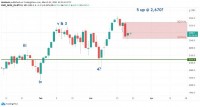|
FUTURES LAB Convergent vs. Divergent Strategies The discussion below develops the key points made by Mark Rosenberg and Paul Lucek in the previous pages. It draws on a paper by Sam Chung, Mark Rosenberg and James Tomeo, published in The Journal of Alternative Investments, Summer 2004, as well as other materials. The conclusion is that “Investors should always have divergent strategies like managed futures as well as convergent stock and bond strategies in their portfolio,” to quote Mr. Rosenberg. Most hedge fund strategies may be grouped into two categories that represent different investment philosophies. Convergent strategies such as equity market neutral and event driven search for over- or under-valued securities. A convergent strategist believes that the intrinsic value of a security can be estimated and the price will converge to this value. By contrast, a divergent strategy is based on the premise that past patterns in security prices can reliably predict future patterns. A divergent strategist believes that these patterns reflect the changing attitudes of investors to a variety of economic, political and psychological factors. Managed futures and global macro are divergent strategies. In efficient markets, the market eventually prices in the information generated by fundamental analysis and convergent strategies work. But market inefficiencies exist due to imperfect or asymmetric information and emotions such as greed or fear. These inefficiencies cause speculative bubbles, price over-shooting and correlation across many markets. Divergent strategies perform better during periods of rising uncertainty and volatility, times when people ignore fundamental information and make decisions based on emotions such as fear. Behavioral finance argues that human psychology leads investors to make the same mistakes repeatedly, creating the possibility of recurrent and predictable patterns in security prices. Managed futures programs use models to detect the patterns and take advantage of them. This is a key advantage in times of market stress. For instance, prices often over-shoot on the downside due to panic, diverging further from intrinsic values. A trading program that incorporates this factor profits from the divergence. The table below shows returns from a managed futures program during the stock market's ten worst months in the past 25 years. During these months of significant equity market loss, the managed futures program correlated negatively with the market. Taking all the months that the S&P 500 declined more than 5% since 1984, the index lost a total of 217.9%. In sharp contrast, the managed futures program gained a total of 93.4% during those months. Divergent Strategy in Periods of Stock Market Stress Since 1984
* The CTA program is SSARIS Diversified Trading Program. The returns are net of fees. The same conclusion emerges from a study of times when there were heavy losses in the bond market, as measured by the Merrill Lynch 5-7 Year US Constant Maturity Index. The index lost a total of 62.7% during the months that it declined by more than 3% since 1990. In those same months, the managed futures program gained a total of 29.9%. Again, the correlation was negative. Because of these characteristics, adding divergent strategies enhances a portfolio's return in economic environments where opportunities are limited for convergent strategies. Combining the two types of strategy in a portfolio reduces the negative outliers and shifts the skew to the positive side. Compared to either category of strategy on its own, the combination has higher risk-adjusted performance. |
|
This article was published in Opalesque Futures Intelligence.
|





 RSS
RSS











